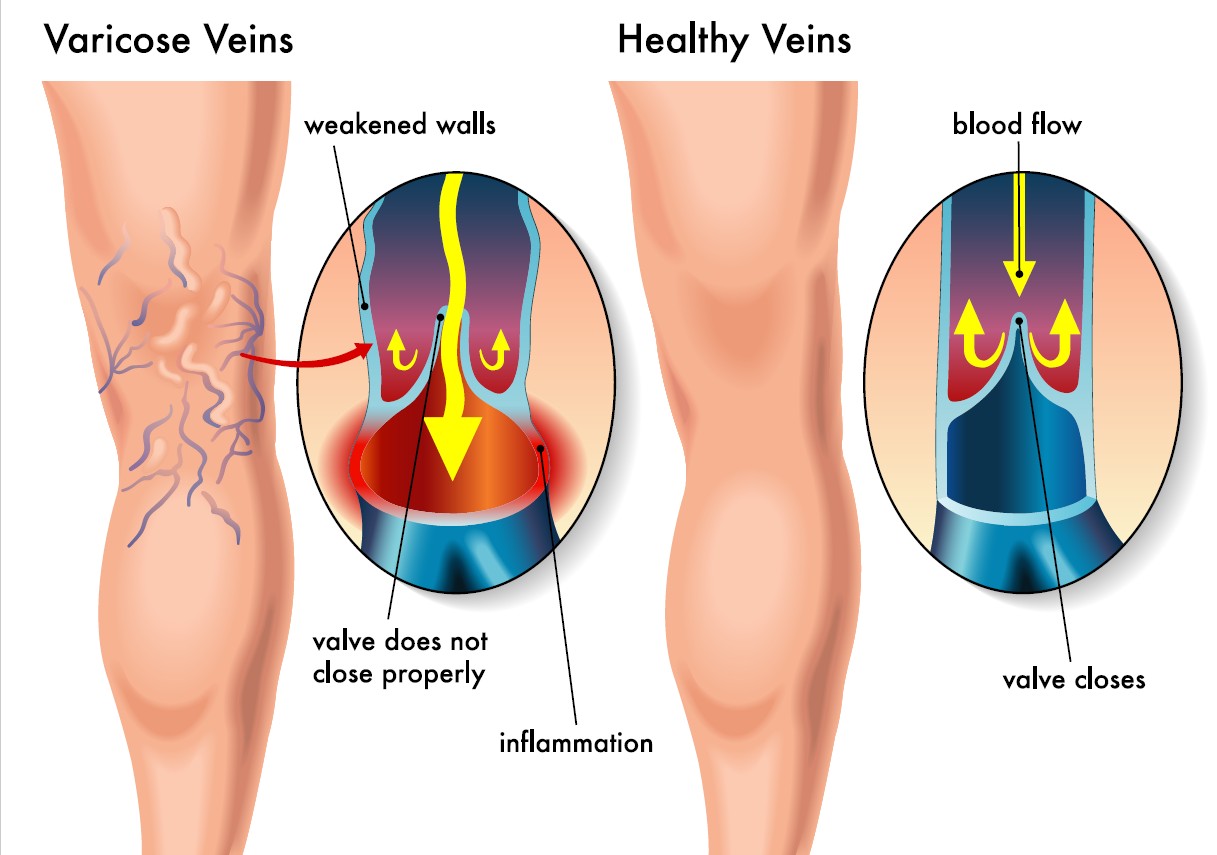A consistent diet of nutritious foods is a significant factor in keeping your body healthy – right down to your vein health.
You may not worry too much about whether your veins are healthy, until you begin to see signs of vein disease like the appearance of varicose veins. However, the best time to treat your veins right is before those telltale vessels appear. Vein Specialists of the Carolinas has a few nutrition tips to help you keep your veins in top condition and possibly ward off those swollen veins indefinitely.
The Importance of Strong Veins
Your veins are the hard-working vessels in the body that are responsible for carrying deoxygenated blood back to the heart. The veins in your lower legs have an even more challenging job because they have to push blood against gravity and the body’s own weight to get the blood flow up where it needs to go. Over time, the vessels can become weak and damaged, which allows blood to reflux back into the vein and cause the vein to swell and become varicose.
Because your veins work hard throughout your life, the more you can do to help keep them strong and efficient, the better. Some of the steps you can take include daily exercise, maintaining a healthy weight and putting your feet up at night to give the vessels a break. Another step you can take is to give those veins the nutrition they need to remain at their healthiest.
Nutrients for Vein Health
There are a number of nutrients to add to your daily diet to benefit your vascular health:
- Bioflavonoids – These nutrient compounds are found in colorful fruits and vegetables, as well as garlic and onions. Bioflavonoids may play a role in strengthening vein walls, which could reduce your risk for varicose veins.
- Vitamin C – This important antioxidant is crucial in helping your body fight off free radical damage that can impact nearly every part of your body including your veins. This nutrient also encourages healthy collagen and elastin production, which serve to keep your vessels strong and flexible.
- Fiber – Fiber is an important nutrient for healthy digestive function, which benefits your veins as well. Constipation can add further stress to veins throughout the body, making them more vulnerable to damage over time.
- Vitamin E – Another important antioxidant, vitamin E may be instrumental in preventing blood clots, a concern for varicose vein sufferers. The nutrient also promotes good vein health overall.
Foods to Avoid for the Sake of Your Veins
While there are certain nutrients you want to be sure to add to your diet for the benefit of your veins, there are also a few foods to limit or avoid entirely. These include foods high in fat and sugar, which can negatively impact your circulation and place additional pressure on your veins. At the same time, foods containing excessive sugar and fat tend to bring on weight gain, which can put more stress on your veins and increase your risk for varicose veins and other venous conditions.
While these steps will help to protect your veins and reduce your risk for varicose veins, they are not an effective “cure” for varicose veins that have already developed. Fortunately, there are many minimally-invasive vein treatments available today that can eliminate swollen vessels and their painful symptom.
To learn more about your options in varicose vein treatment, contact the Vein Specialists of the Carolinas today at 704-544-5245 or 704-861-2072.
“All We Do Is Veins, All Day Every Day.”

